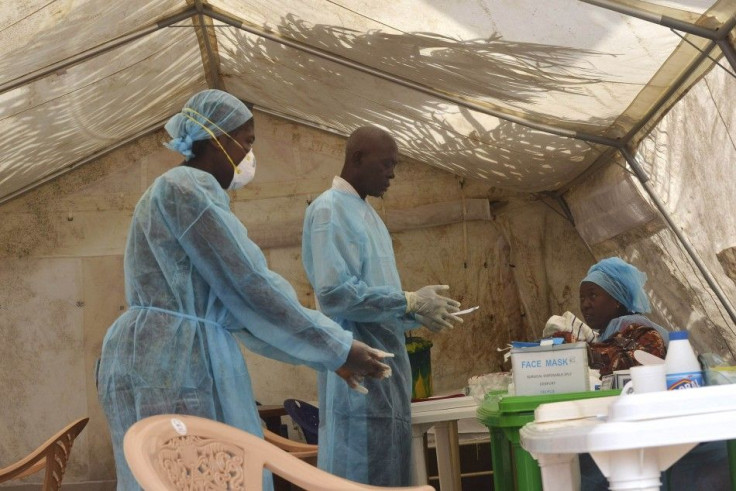Ebola Outbreak: Liberia Struggles to Control More Potential Health Scare from Rotting Corpses, Orders Cremation; Death Toll 887

Liberia has started burning the bodies of the victims of the deadly Ebola virus to avert more potential health scare from the rotting corpses. The death toll now has reached 887 in the three western African nations of Guinea, Liberia and Sierra Leone. Nigeria has reported its second Ebola case.
The order to cremate the corpses of the Ebola-afflicted victims resulted from the resistance of residents of several communities who do not want the bodies buried in their areas.
Some residents worry the virus that caused the outbreak could still live in the body of a victim long enough to infect another person.
"Ebola, we don't know where it came from and we don't know its effect," the Telegraph quoted a local man named Bill Marshall. "The grave will give us Ebola, it will kill us."
Read: 2014 Ebola Outbreak: Afflicted Resort to Witch Doctors; Locals Believe Virus is a Western Conspiracy
Despite cremation not part of the culture and practice of the Liberian people, President Johnson Sirleaf explained the burning order is part of the government's several measures to fight and contain the Ebola disease in Liberia.
"This measure is intended to avoid tampering with the dead and contaminating water sources," Ms Sirleaf had said earlier in a nationwide address.
The World Health Organisation, in a guideline for burial procedure, did note that volunteers and staff should be aware and respect the family's cultural practices and religious beliefs.
However, they should help the family understand why some practices cannot be done because they place the family or others at risk for exposure.
Read: 2014 Ebola Outbreak: Sierra Leone Declares Emergency, Death Toll Now 729
"Counsel the family about why special steps need to be taken to protect the family and community from illness. If the body is prepared without giving information and support to the family and the community, they may not want to bring other family members to the health facility in the future. They may think that if the patient dies, the body will not be returned to them."
Lewis G. Brown, Liberian information minister, told the New Dawn on Sunday that cremation has started over the weekend in Marshall, another county affected by the tropical disease.
In Liberia, bodies of victims could be seen still lying in the streets for four days. Residents are so terrified to remove them.
Among them were the bodies of two men who sought help from the community to take them to the hospital as they bled and vomited.
Read: 2014 Ebola Outbreak: US CDC Issues Travel Advisory; Virus 'Dreadful and Merciless'
"But community members ran for their lives," Nema Red, a resident of Clara Town, told Reuters. "They both gave up and dropped dead on the ground in the streets of Clara Town."
Brown admitted the government's retrieval system of the Ebola-infected bodies was slow, until the cremation order came out, because they don't have a place to put the bodies since communities disapproved to have them buried in their lands.
"It has been slow to collect bodies because of the refusal and the resistance by communities," he said.
Meantime, Nigeria's second confirmed Ebola case was the doctor who treated Patrick Sawyer, the Liberian-American man who died on July 25, days after arriving in Nigeria from Liberia.
Read: 2014 Ebola Outbreak: Dubai's Emirates Suspends Flights to Guinea, Test on Woman Who Died in UK After Arriving from Gambia Negative
Onyebuchi Chukwu, Nigerian health minister, said three others who also treated Sawyer are likewise showing symptoms of Ebola. Their test results are still pending, he said.
"This cluster of cases in Lagos, Nigeria is very concerning," the AP quoted Dr Tom Frieden, director of the U.S. Centers for Disease Controls and Prevention. "It shows what happens if meticulous infection control, contact tracing, and proper isolation of patients with suspected Ebola is not done."
"Stopping the spread in Lagos will be difficult but it can be done," he said.
Lagos' population is comprised of 21 million people.
Read: 2014 Ebola Outbreak: CDC Blasted for Bringing Home Infected American Doctor Kent Brantly, 2nd Stricken American Nancy Writebol to Arrive on Tuesday





















